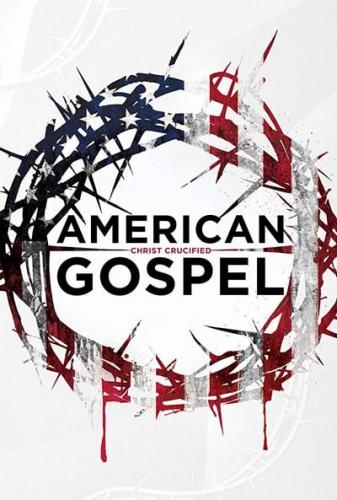** Please watch “American Gospel Christ Alone” first before continuing to watch American Gospel Christ Crucified.**
The documentary’s main claim is that progressive Christianity is attempting to skirt the recklessness of the cross searching for a more savory spiritual experience. Progressive Christianity, as represented in figures like Richard Rohr and Rob Bell, draws from the 21st-century Emergent Church movement and the Protestant liberalism of the 19th and early 20th centuries. It declares a message that fights authority, custom, and certainty: God is larger than what our teachings, religious customs, and even Bibles can incorporate, so why stress over correct teachings or interpretations?
While countless are earnestly drawn to the progressive movement out of a search for truth about God, “progressive Christianity” and its claims are particularly marketable to those disillusioned with evangelicalism. Whether one has actually been burned by the church, heard teaching taught improperly, or been raised on a diet of pureness conferences, altar calls, and X-Treme Youth Camp experiences, progressive Christianity appears to provide an escape. Watch American Gospel Christ Crucified and see how it grants these excesses and failures in lots of American churches. However while it may agree with a few of the diagnostic issues raised by progressive Christians, it takes their solutions to task. The comprehensive documentary interviews progressive voices like Tony Jones, and Adam Narloch and John Williamson of The [De] constructionists podcast, while providing counterclaims from a variety of people like Alisa Childers, Mark Dever, John MacArthur, Kevin DeYoung, Paul Washer, and more.
At less than 3 hours, the movie– a follow up to American Gospel: Christ Alone– covers a list of subjects. Possibly way too many. It is challenging to adequately deal with issues about the exclusivity of Christ, hell, the characteristics of God, LGBT problems, the penal substitutionary view of the atonement, and more, all in one documentary. Still, the movie’s general quality and material is impressive. Invitees provide sound responses, reasons, and exegetical evidence to the difficulties presented by progressives in manner ins which will benefit lots of audiences.
Popular in the movie is the teaching of penal substitutionary atonement (PSA), the view that states Christ was a replacement for sinners on the cross; bearing the curse of sin and the wrath of God so that we may no longer stand condemned. The movie skillfully protects the teaching, and it succeeds to highlight remarks by Alistair Begg and Kevin DeYoung about how the everlasting persons of the Trinity are not at odds with each other in the penal substitutionary view [2:08:26; 2:09:40]
Watch American Gospel Christ Crucified and you will find it a valuable tool for providing and addressing a few of the typical reviews of progressive Christianity. The movie checks claims about universal redemption, an error-ridden Bible, and a God who changes against Bible itself. It likewise examines where these kinds of arguments came from and if their philosophical systems are even consistent.
While the concept of a God who is just loving and not wrathful or just might be appealing to the typical Westerner, this view misses out on the good news that “by his stripes we are healed” (Is. 53:5). Eventually American Gospel: Christ Crucified is a valuable, stirring notice that a gospel that leaves the wages of sin unsatisfied is not good news at all.
These resources are strictly meant to educate and help grow in your faith as you dig deeper into the evidences of His Word.
Download American Gospel – Christ Crucified(May take a few minutes to load)
